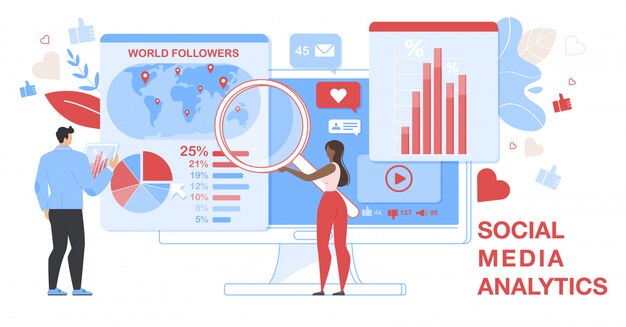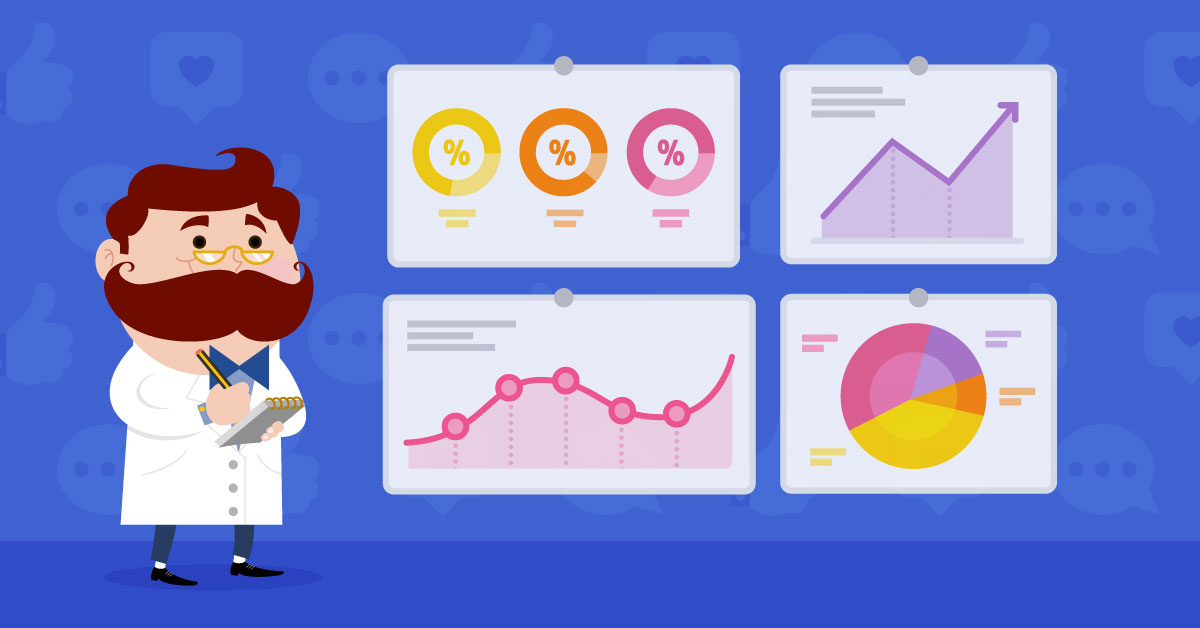In today’s digital age, social media has become an indispensable tool for businesses and individuals alike. With millions of users engaging on platforms like Facebook, Instagram, Twitter, and LinkedIn, it has become essential for businesses to understand the impact of their social media activities. This is where social media analytics and reporting come into play, offering valuable insights and data-driven strategies to enhance online presence and engagement.
Social Media Analytics and Reporting: Unraveling the Metrics Maze for Digital Success

Understanding Social Media Analytics: The Basics
Social media analytics involves the process of collecting, analyzing, and interpreting data from social media platforms. It helps businesses track their performance, monitor audience behavior, and measure the effectiveness of their marketing efforts.
Importance of Social Media Metrics
Metrics such as reach, engagement, likes, shares, and comments provide valuable information about the audience’s response to content. By analyzing these metrics, businesses can identify what works best and refine their strategies for maximum impact.
1. Reach and Impressions
Understanding the reach and impressions of social media posts helps in gauging the content’s visibility. Reach indicates the number of unique users who saw the content, while impressions represent the total number of times the content was displayed.
2. Engagement Metrics
Engagement metrics, including likes, shares, comments, and click-through rates, measure the audience’s interaction with the content. Higher engagement signifies a more active and interested audience.
Social Media Reporting: Transforming Data into Actionable Insights
Social media reporting involves compiling and presenting data in a comprehensible format. Reports provide businesses with a clear understanding of their social media performance, enabling data-driven decision-making.
1. Data Visualization Tools
Utilizing data visualization tools, such as graphs and charts, simplifies complex data sets. Visual representations enhance understanding, making it easier for businesses to identify trends and patterns.
2. Customized Reporting
Tailoring reports to specific goals and objectives ensures relevance. Customized reports focus on key metrics, allowing businesses to assess the success of their social media campaigns accurately.
Leveraging Analytics for Effective Online Strategies
Understanding social media analytics empowers businesses to refine their online strategies for optimal results.
1. Targeted Content Creation
Analyzing audience preferences helps in creating content tailored to their interests. By delivering relevant content, businesses can enhance engagement and build a loyal customer base.
2. Strategic Scheduling and Posting
Analyzing peak engagement times enables businesses to schedule posts when the audience is most active. Strategic scheduling ensures maximum visibility and interaction.
Conclusion
In conclusion, social media analytics and reporting play a pivotal role in shaping successful online strategies. By delving into the data, understanding audience behavior, and leveraging insights, businesses can enhance their social media presence, engage effectively with their audience, and achieve their goals.
To experience the power of social media analytics firsthand and elevate your online presence, request a demo from AIM Technologies today. Our expert team is ready to guide you through the process, helping you harness the full potential of your social media efforts.
FAQs
Q1: What social media platforms are commonly analyzed using social media analytics?
- A1: Social media platforms such as Facebook, Instagram, Twitter, LinkedIn, and YouTube are commonly analyzed using social media analytics tools.
Q2: How often should businesses conduct social media reporting?
- A2: Businesses should conduct social media reporting regularly, ideally on a monthly or quarterly basis, to track their performance consistently.
Q3: Can social media analytics help in identifying customer preferences?
- A3: Yes, social media analytics can help businesses identify customer preferences by analyzing likes, shares, comments, and other engagement metrics.
Q4: Are there free social media analytics tools available for businesses?
- A4: Yes, there are several free social media analytics tools available, such as Google Analytics, Facebook Insights, and Twitter Analytics, offering valuable insights without additional costs.
Q5: How can businesses use social media analytics to improve their advertising campaigns?
- A5: Businesses can use social media analytics to analyze the performance of their advertising campaigns, identify successful strategies, and optimize their future campaigns for better results.




